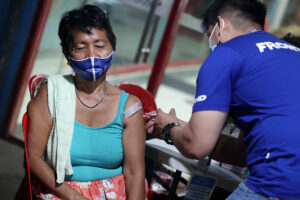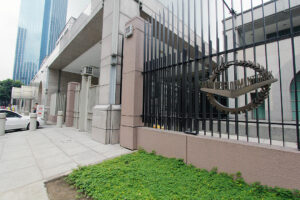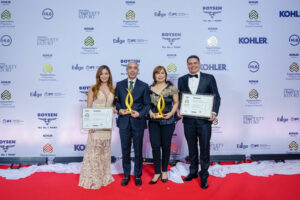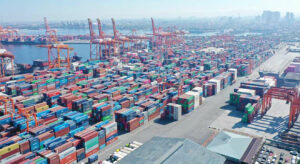A Filipino First security strategy for the next president

A critical step in choosing the next set of leaders in the upcoming 2022 elections is identifying the key issues that have a significant impact on the welfare and development of the Philippines. This entails an assessment of the current administration’s policy agenda and understanding how it unraveled throughout its six-year term. It also delves deep into the present circumstances the country is in — both in its interests within our borders and its regional and global standing.
The Duterte administration was handed a Philippines that had to navigate an Indo-Pacific in the midst of a geopolitical shift as a growing economic and strategically important region. As such, foreign and national security became a top priority.
However, looking back, President Rodrigo Duterte’s appeasement policy and pivot to China — evident in his change of tone from the July 12, 2016, Arbitral Ruling — brought a chain of consequences that radiated beyond maritime and territorial interests. The policy affected the country’s political and defense credibility and allowed preferential treatment of Chinese ventures that proved to be socio-economically corrosive and were even a security risk that other countries would never have tolerated.
The next administration must veer away from this defeatist policy and instead shift to a more assertive but balanced stance that will be responsive to incursions and ready to push back on any move that compromises our national interests. The best way forward is to learn the lessons of Duterte’s term and for the next administration to craft a new security strategy that would demonstrate our resolve to uphold our sovereignty and the rule of law to maintain peace and stability in the region.
MAXIMIZING OPTIONS AND RESOURCESDuring the Stratbase Albert Del Rosario Institute’s Virtual International Conference titled “Rethinking Philippine National Security Strategy towards a Stronger Maritime Defense and Security Posture,” experts expressed analogous sentiments on the need to craft a National Security Strategy (NSS) that maximizes immediate resources and options available. They also offered several recommendations moving forward.
According to Dr. Renato de Castro, Trustee and Program Convenor of Stratbase ADRi, the future strategy to be developed must be based on the 2016 arbitral ruling. With this, international law and norms, territorial integrity and national sovereignty are at the core of the NSS. Policies — whether at the tactical, procedural, and administrative levels — will revolve around this. This goes hand in hand with the capacity and capability development of the Armed Forces of the Philippines in addressing further potential threats.
Another important option and resource available to the Philippines is its long-standing alliance with the United States and expanded network of strategic partnerships within the region that have similar vision in maintaining a rules-based order. As emphasized by Dr. Charmaine Misalucha-Willoughby, Associate Professor in the International Studies Department of De La Salle University, given the defense capability of the Philippines, it is within the country’s interest to pursue multilateralism. However, this pursuit does not entail turning away from China completely since economic interdependence is a reality not only to the bilateral relations of the Philippines and China but all states throughout the region and beyond. She emphasized that the next administration must turn away from its neutrality in the face of conflict.
On top of the NSS development and maximizing multilateralism, Richard Heydarian, Non-Resident Fellow for Stratbase ADRi, emphasized the need for inter-agency cooperation and a whole-of-nation approach which will enable an alignment of mandates and policy direction for national agencies — especially those in the defense and foreign policy sector.
THE POWER OF THE ELECTORATEPresidential candidates have campaigned, debated, and presented their respective policy priorities drawn from the experiences and missteps of the Duterte administration regarding this issue. Campaign pronouncements on their foreign policy agenda, while mostly echoing the advice of the experts, will need to be implemented by a new president who has the intellect and fortitude to face adversarial situations that may become confrontational but must be handled with grace and decorum.
As the 2022 National Elections draws closer, the electorate should keep in mind that the country’s future in the next six years will be shaped by their vote. The people must choose a candidate that has the strategic thinking to appraise the complex dynamics of regional geopolitics and earn the respect of leaders in the international arena.
The next president must always be sensitive to the true will of the people. As proven by scientific national surveys, our sovereign rights in the West Philippine Sea must not be compromised. Any candidate who shows a wavering stance rationalized by a myopic perception of our ability as a nation can easily be rejected by our vote.
We must elect a president who is the embodiment of the good values and aspirations of the Filipino nation.
Victor Andres “Dindo” C. Manhit is the president of the Stratbase ADR Institute.




